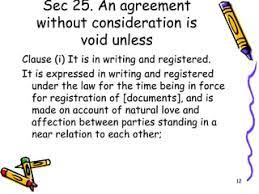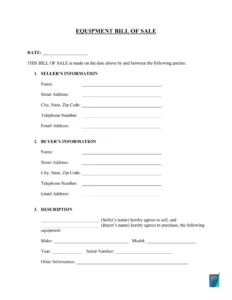Not all property rights are distinctly defined. Depending on the situation, a person who does not legally own property may occasionally be able to benefit from it. The increase in income may be attributed to financial contributions to the purchase price or mortgage, as well as additional expenses like home renovations or utility bill payments. Constructive trust differs from other forms of trust in that the court makes an inference about them instead of the parties’ explicit intentions. An example of constructive trust will be discussed in this article.
In this article, constructive trust with an example will be discussed. So keep reading for more insights
A constructive trust: what is it?
The law establishes a constructive trust when it is unethical for one person to possess an asset. It can also deny another person their beneficial stake.
Equity prevents the unjust denial of beneficial interest in institutional constructive trusts when one party acts against the shared intention to acquire it.
Equity can protect against fraud by holding perpetrators liable as trustees when a corrective constructive trust is established. Constructive trusts don’t need to be documented in writing. Regardless of the parties’ intentions, they emerge as a result of the functioning of the law.
What a Constructive Trust Is For?
Constructive trusts and property interests are interconnected, as the former aims to transfer ownership of the latter to compensate for wrongdoings. It is established when a court deems the person in possession of an asset as the real owner, who was harmed by their actions. Even if the property appreciates above what it was originally worth, the true owner still retains all benefits.
Constructive Trusts with a Common Goal
As mentioned above, one specific kind of constructive trust is a common intention constructive trust. A typical scenario involves a couple moving into a registered home, with one partner contributing half of the monthly mortgage and other expenses. However, when the relationship ends, the person with the legal title will assert ownership of the property outright.
The full beneficial interest in a property is typically assumed to belong to the legal owner. The court can overturn the presumption that equity follows the law if it can be proven that beneficial ownership differs from legal ownership on a probability balance. The party claiming a beneficial interest in the property must prove common intention, which is typically inferred from the parties’ behavior.
When determining whether there is a constructive trust, the court would consider the following factors:
- How did the parties set up their financial affairs; For instance, did the couple have shared or separate bank accounts?
- Did the person claiming a beneficial interest contribute in any other way, or alone to the purchase price or mortgage payments?
- The property’s plan, as evident from your actions and discussions during the purchase and ownership period, reveals a clear understanding of the property’s purpose.
Courts may grant cohabiting couples property shares based on their respective contributions, as they believe the other party intended a share, and denying it would be unfair.
An Example of Constructive Trust
Let’s take a scenario where Larry stole $5,000 from Ahmed and used it to purchase a secondhand automobile. Ahmed is rightfully furious and sues Larry for the money; the judge finds in Ahmed’s favor. It is possible to transfer ownership of the secondhand car from Larry to a constructive trust.
Larry will be responsible for maintaining Ahmed’s car after the trust is established. Larry can be ordered by the court to give Ahmed the automobile or reimburse him for the money. Since Ahmed paid for the car, the trust looks after and preserves it for Ahmed. The constructive trust expires when it’s returned or the money is paid back.
What Distinguishes a Constructive Trust from a Resultant Trust?
One kind of trust that is mandated by law is a resultant trust. The purpose of the trust is to give the settlor—the individual who established the trust—back beneficial ownership of the trust property, in whatever form that may exist. This would happen, for instance, if the settlor of an explicit trust neglected to instruct the trustees regarding the disposition of the trust assets (or a portion of them).
In the event of the siblings’ passing, certain assets would remain in trust. If (A) passes away, the trust assets will be held in a subsequent trust for (A) as the settlor’s estate.
What Occurs if There Is a Disagreement over Who Owns the Property?
Getting legal counsel from an adequately skilled solicitor is the first step. Share ownership disputes are frequently settled by mediation or negotiation.
If negotiations fail, the individual may need to file a claim under the 1996 Trusts of Land and Appointment of Trustees Act. TOLATA is a legislative measure that addresses a variety of issues, including ownership disputes. The court is granted the power to modify property ownership by directing its sale and allocating its revenues.
FAQs
What Is the Constructive Trust Principle?
A joint venture constructive trust can only exist if there are three things:
(1) an agreement or understanding between the parties
(2) reliance on that agreement or understanding
(3) incongruous behavior.
What Distinguishes Estoppel from Constructive Trust?
A claim for estoppel is founded on an assurance that the claimant has depended upon from the legal owner, but a constructive trust is fundamentally imposed based on an agreement between a claimant and a defendant. The solutions offered in the two situations also differ from one another.
What Is Meant by Constructive or Implicit Trust?
An implicit, constructive, or resultant trust develops naturally or is enforced by the law under specific conditions rather than being consciously developed. A trustee of a trust is obligated to pay regular land tax on all land held in the trust.
Bottom Line
The establishment of a constructive trust is not determined by a specific behavior, but common themes include fraudulent, stolen, or incorrect delivery of property. Furthermore, in cases where there is a more suitable legal remedy, a constructive trust will not be established.
Also, Read



